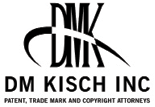From a legal perspective, what happens in a situation when genuine articles manufactured by the actual manufacturer, such as high-pressure vessels or electrical goods, are imported into South Africa, but the manufacturer’s labels have been removed and replaced with falsified labels that bear fictitious serial numbers, and do not specify the electrical, oil and refrigerant information that is critical to safe and efficient installation and operation of the goods – but which bear the manufacturer’s trademarks?
The main consideration that needs to be taken into account in the above scenario is the nature of the grey goods we are dealing with. The mere incorrect labelling of goods of the kind mentioned above, or the omission of critical information on labelling applied to such goods, could result in the end user’s death.
There are a number of legal considerations that need to be analysed in such a scenario.
Trademark-related issues
Section 34(1)(a) of the Trade Marks Act 193 of 1994 provides that the rights acquired by a trademark registration shall be infringed by: “the unauthorised use in the course of trade in relation to goods or services in respect of which the trademark is registered, of an identical mark or of a mark so nearly resembling it as to be likely to deceive or cause confusion.”

DM Kisch律师事务所
商标律师
Trademark Associate
DM Kisch
One can successfully defend against an allegation of trademark infringement based on section 34(1)(a) of the Trade Marks Act when a registered trademark is applied to a genuine article that has been manufactured by the actual manufacturer, and has been imported into the country with the consent of the manufacturer. The question of genuineness is not limited, though, to an enquiry as to the genuineness of the goods themselves, but rather the material issue of how the trademark is applied.
Citing a previous judgment he had made Grosskopf JA, in the Supreme Court of Appeal in the 1987 case of Television Radio Centre v Sony, held that no infringement of a trademark is committed by a trader that sells genuine goods properly marked with the trademark by, or with the consent of, the trademark owner.
If another party alters the goods, however, they are to the extent that they have been altered no longer the goods to which the trademark was affixed by the proprietor.
Does removing a label from the manufacturer’s genuine product and replacing the same with falsified labels that bear the manufacturer’s trademark but include fictitious serial numbers, and which do not specify the electrical, oil and refrigerant information critical to safe and efficient installation and operation of the goods, render the genuine article altered?
If the addition to a label of fictitious serial numbers removes the ability of the actual manufacturer to recall a defective batch of high-pressure vessels from the market, or does not specify the electrical, oil and refrigerant information critical to safe and efficient installation and operation of the goods, such falsified labels may constitute a real danger to the safety of the end user, as the consumer is exposed to severe safety risks. It cannot be asserted that the end user is buying a genuine article, and in all likelihood one can conclude that such article has been materially altered.
Consumer Protection Act
Section 24(2)(a) and (b) of the Consumer Protection Act provide that: “a person must not knowingly apply to any goods a trade description that is likely to mislead the consumer as to any matter implied or expressed in that trade description; or alter, deface, cover, remove or obscure a trade description or trademark applied to any goods in manner calculated to mislead consumers.”
The omission of the electrical, oil and refrigerant information is clearly in contravention of the act, as it is likely to mislead consumers into accepting or believing that the particular product does not have any specific operational characteristics, and consumers will be unaware of, for example, the fact that certain technical data must be complied with for the safe and effective operation of the product in question, or that there are specific instructions as to how the product should be operated, installed and commissioned in order to ensure safety and proper operation of the product.
In order to succeed in an action based on unlawful competition, the actual manufacturer must establish all the requisites of Aquilian liability. Unlawfulness is one such requisite of Aquilian liability, and must be determined on a case by case basis.
The Aquilian action – derived from Roman law principles – is one of the main delictual remedies in South African law, and the harm addressed is essentially patrimonial loss. The class remedy for a delict is compensation, i.e. damages claimed for the harm caused to the innocent party by a wrongdoer.
On the set of facts presented above, the party distributing the offending products is wrongful as it is in contravention of the Consumer Protection Act, and it infringes the actual manufacturer’s trademarks as the offending products have been materially altered by removing a label from the manufacturer’s genuine product and replacing it with falsified labels bearing fictitious serial numbers, and not specifying the electrical, oil and refrigerant information critical to safe and efficient installation and operation of the goods.
Damaged reputation
The above wrongful conduct, furthermore, will result in direct damage to the actual manufacturer’s reputation in the market, as it will not be in a position to ensure quality control of its products and recall defective batches of products in the event that a recall becomes necessary, i.e. as is done from time to time by motor vehicle manufacturers.
Consumers will also feel ill-informed if not directly guided by material product information that should be affixed to a product label, and there is the likelihood that a consumer may be injured or killed as a result of such a material omission.
The removal of crucial product information essentially makes the products warranty void, resulting in a negative impact on consumer confidence in the actual manufacturer, and its reputation in the market.
Karen Kitchen is a trademark associate at DM Kisch
5 Inanda Greens Business Park
54 Wierda Road West
Wierda Valley
Sandton, Johannesburg, South Africa
电话 Tel:+27 11 324 3000
传真 Fax:+27 86 603 6118
电子邮件 E-mail:
karenk@dmkisch.com
www.dmkisch.com






















